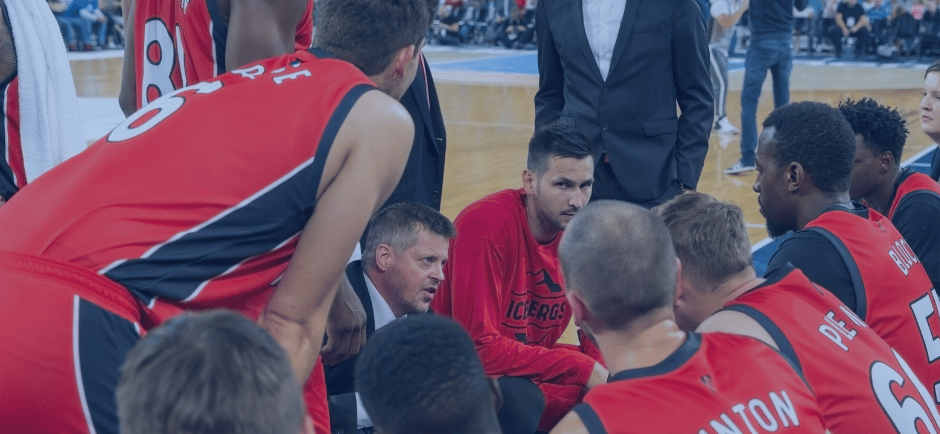The Real Game Behind College Recruiting: How to Get Noticed, Evaluated & Recruited
Educating athletes and parents on the strategy needed to get on a college coach’s radar.
Anthony Moore
3/25/20255 min read


Understanding the College Recruiting Landscape
The college recruiting process plays a pivotal role for athletes aspiring to secure scholarships or gain a position on a collegiate sports team. It not only serves as a pathway to further athletic development but also enhances educational opportunities. For many students, attaining a sports scholarship can significantly reduce the financial burden of higher education, thus making recruitment a crucial aspect of their athletic careers.
Throughout the recruitment journey, college coaches meticulously evaluate prospects based on various criteria. These criteria typically include athletic performance, skill level, and character. Coaches attend high school games, tournaments, and showcases to assess talent firsthand, often relying on video footage and statistics as well. Additionally, athletes are encouraged to create robust athletic resumes that highlight their accomplishments, which serve as a vital tool in capturing the attention of potential recruiters.
The timeline of the recruitment process varies by sport, division, and level of competition. Generally, the recruiting cycle can begin as early as a student-athlete's sophomore year, with peak activity occurring in their junior and senior years. For instance, Division I programs often have formal recruiting periods that dictate when coaches can contact athletes, whereas Division III institutions may have different protocols. Understanding these timelines is crucial for athletes who wish to position themselves effectively in the competitive landscape of college recruiting.
Moreover, recruitment practices differ widely across sports. For example, sports like football and basketball tend to have more structured recruiting frameworks compared to sports such as track and field or swimming, where times and statistics often play a more prominent role in evaluation. It is essential for athletes to familiarize themselves with the specific dynamics associated with their chosen sport to navigate the recruitment landscape successfully.
Crafting Your Personal Brand as an Athlete
The significance of personal branding for athletes in today’s competitive sports landscape cannot be overstated. A well-crafted personal brand serves as a powerful tool for showcasing skills and achievements, especially when seeking college recruitment opportunities. Social media platforms, personal websites, and recruitment videos play pivotal roles in this branding process.
To establish a compelling personal brand, athletes should first focus on creating a professional social media presence. Platforms like Instagram, Twitter, and Facebook are invaluable for sharing updates regarding training progress, game performances, and personal achievements. It is crucial for athletes to curate content that accurately reflects their abilities and work ethic while also engaging authentically with their audience. This not only helps in building a loyal following but also makes a favorable impression on college coaches who often scout potential recruits through these networks.
In addition to social media, having a dedicated personal website can enhance an athlete's visibility. This website should feature an athlete's biography, statistics, achievements, and highlight videos, providing coaches with all pertinent information in one location. A well-designed website can effectively capture the professionalism of an athlete, making it an attractive resource for scouts and recruiters.
Recruitment videos are another essential component of establishing a personal brand. These videos should highlight key skills and techniques, demonstrating the athlete's strengths in action. It is important to ensure that the quality of these videos is high, as this will reflect the athlete’s commitment to their sport and personal branding efforts. Athletes should aim to keep their videos concise yet impactful, showcasing their abilities in the best possible light.
Presenting a professional image is fundamental to attracting the attention of college coaches and scouts. Athletes should maintain consistency across all platforms, providing a unified representation that conveys their values, dedication, and passion for their sport. A positive online reputation can significantly enhance an athlete's chances of being noticed, evaluated, and ultimately recruited.
Networking: Building Relationships with Coaches and Scouts
In the competitive realm of college recruiting, networking plays a pivotal role for athletes aspiring to further their athletic careers. Establishing connections with coaches and scouts can significantly enhance an athlete's visibility and opportunities for evaluation. Athletes and their families must take a proactive approach to networking by reaching out to coaches at institutions of interest. This can be achieved through personalized communication, such as tailored emails or direct messages, providing an overview of their accomplishments, showcasing their athletic journey, and expressing genuine interest in the program.
Participation in showcases, camps, and tournaments where college coaches are present is another essential strategy for effective networking. These events not only allow athletes to demonstrate their skills in a competitive environment but also facilitate face-to-face interactions with potential recruiters. Athletes should come prepared to engage with coaches, making sure to stand out not just in performance but also in personality and professionalism. It is vital to present oneself well during these events as first impressions can have lasting effects on recruiting decisions.
Communication is a cornerstone of networking; thus, maintaining contact with coaches after initial interactions is crucial. Athletes should follow up with coaches to express gratitude for their time and reiterate their interest in the program. Regular updates on performance, academics, and personal achievements can keep coaches engaged and invested in the athlete’s progress. Building genuine relationships takes time and effort, so athletes need to approach these conversations authentically and respectfully, demonstrating a true passion for the sport.
In conclusion, the process of networking with coaches and scouts is fundamental to successful college recruiting. By proactively reaching out, participating in key events, and nurturing communication, athletes can significantly increase their chances of being noticed and evaluated by prospective programs.
The Evaluation Process: What Coaches Look For
When it comes to college recruiting, understanding what coaches prioritize during the evaluation process can significantly enhance an athlete's chances of being noticed and ultimately recruited. Coaches evaluate potential recruits based on several key attributes that extend beyond mere athletic ability. These aspects include work ethic, attitude, and academic performance.
First and foremost, athletic ability is critical. Coaches assess players' specific skills relevant to their sport, including speed, strength, agility, and overall game performance. However, these physical attributes serve only as part of a broader evaluation framework. A strong work ethic is highly regarded; coaches favor athletes who demonstrate a commitment to improvement, continuous practice, and resilience in the face of challenges.
Additionally, attitude plays a vital role in evaluations. An athlete's demeanor during practices, competitions, and interactions with coaches and teammates can reveal much about their character. A collaborative spirit, respect for feedback, and positive energy can distinguish an athlete from peers who may possess similar skills but lack the right mindset.
Academics cannot be overlooked. Coaches typically seek student-athletes who maintain a solid academic record, demonstrating that they can balance sports with educational commitments. Good grades may also ensure eligibility, which is an essential consideration for coaches when opening recruiting discussions.
For athletes preparing for evaluations, it's beneficial to focus on practice routines that enhance both physical and mental attributes. Incorporating mental conditioning exercises, establishing clear goals, and visualizing success can lead to peak performance on evaluation day. Approaching evaluations with a positive mindset and readiness to showcase their abilities will greatly assist athletes in standing out during the selection process.
Mindset • Skill Work • IQ • Recruiting
Customized training.
Mindset work.
Real mentorship.
Let’s get you seen, evaluated, and recruited.
contact@coachanthonytty.com
© 2025. All rights reserved.
